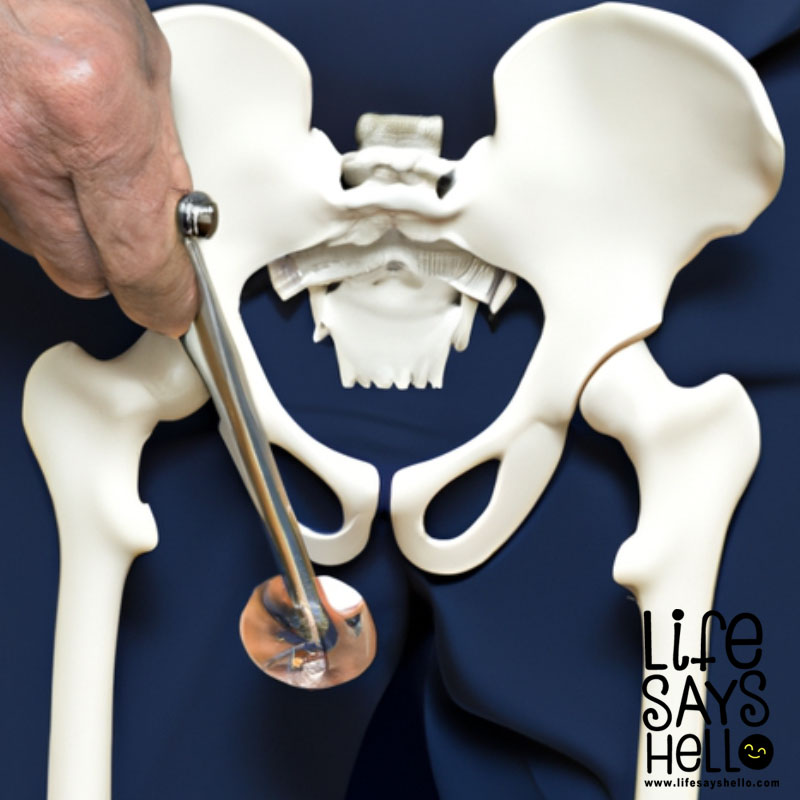How to Determine if Your Hearing Loss is Temporary or Permanent: A Comprehensive Guide for Better Hearing Health

Opening Sentence: Are you struggling to hear clearly and wondering if your hearing loss is temporary or permanent? This comprehensive guide will help you understand the differences, causes, and treatment options to improve your hearing health.
Hearing loss affects millions of people worldwide, and understanding whether it's temporary or permanent is essential to finding the right solution. In this comprehensive guide, we'll explore the different types of hearing loss, common symptoms, and how to determine if your hearing loss is temporary or permanent. By the end of this article, you'll have a better understanding of your hearing health and the steps you can take to improve it.
Types of Hearing Loss
There are three main types of hearing loss: conductive, sensorineural, and mixed. Each type has its own set of causes and potential treatments.
Conductive Hearing Loss
Conductive hearing loss occurs when sound cannot efficiently travel through the outer and middle ear to the inner ear. This type of hearing loss is often temporary and can be caused by ear infections, earwax buildup, or a foreign object in the ear. Treatment for conductive hearing loss typically involves addressing the underlying cause, such as medication for an infection or professional earwax removal.
Sensorineural Hearing Loss
Sensorineural hearing loss is the most common type and results from damage to the inner ear or the auditory nerve. This type of hearing loss is typically permanent, as the hair cells and nerve fibers responsible for transmitting sound cannot regenerate. Common causes of sensorineural hearing loss include aging, exposure to loud noises, certain medications, and genetic factors.
Mixed Hearing Loss
Mixed hearing loss is a combination of both conductive and sensorineural hearing loss. This means that there is damage to both the outer or middle ear and the inner ear or auditory nerve. Treatment for mixed hearing loss depends on the specific causes and may involve a combination of approaches.
Symptoms and Indicators of Temporary Hearing Loss
Temporary hearing loss can manifest in various ways, but some common symptoms include:
- Muffled sounds or difficulty understanding speech
- Difficulty hearing in noisy environments
- A feeling of fullness or pressure in the affected ear
- Tinnitus, or ringing in the ears
Common causes of temporary hearing loss include:
- Ear infections: Inflammation or fluid buildup in the middle ear can block sound from reaching the inner ear, leading to temporary hearing loss.
- Earwax impaction: Excessive earwax can block the ear canal and prevent sound from reaching the eardrum.
- Exposure to loud noises: Sudden loud noises or long-term exposure to high noise levels can cause temporary hearing loss, known as noise-induced hearing loss.
Symptoms and Indicators of Permanent Hearing Loss
Permanent hearing loss can also present various symptoms, but some common indicators include:
- Difficulty understanding speech, especially in noisy environments or on the phone
- Needing to turn up the volume on devices, such as TVs or radios
- Struggling to hear high-pitched sounds, like children's voices or birdsong
- Tinnitus, or ringing in the ears
Common causes of permanent hearing loss include:
- Aging: Age-related hearing loss, or presbycusis, is a natural part of the aging process and is caused by the gradual deterioration of the inner ear structures.
- Noise-induced hearing loss: Long-term exposure to loud noises can cause permanent damage to the hair cells in the inner ear responsible for transmitting sound.
- Medical conditions: Certain medical conditions, such as Ménière's disease, can cause permanent hearing loss.
Seeking Professional Help
If you suspect you're experiencing hearing loss, it's crucial to consult an audiologist or medical professional for an accurate diagnosis. They will perform a hearing evaluation, which typically includes a physical examination of your ears, a series of hearing tests, and a review of your medical history.
The physical examination will check for any visible abnormalities or blockages in your ears, such as earwax impaction or inflammation. The hearing tests will assess your ability to hear different frequencies and volumes, as well as your speech recognition. Your medical history will help the professional determine if any underlying conditions or medications could be contributing to your hearing loss.
Treatment and Management Options
Depending on the cause and type of hearing loss, various treatment options are available. For temporary hearing loss, treatment may include:
- Medication: Antibiotics or anti-inflammatory medications can help treat ear infections, reducing inflammation and fluid buildup in the middle ear.
- Earwax removal: A professional can safely remove impacted earwax, allowing sound to reach the eardrum.
- Avoiding loud noises: If your hearing loss is due to noise exposure, taking steps to protect your ears from further damage is essential. This may include wearing earplugs or noise-canceling headphones and limiting your exposure to loud environments.
For permanent hearing loss, treatment options may include:
- Hearing aids: These devices amplify sounds, making them easier to hear. There are various styles and technologies available, so it's essential to work with a professional to find the best fit for your needs.
- Cochlear implants: For more severe hearing loss, cochlear implants can bypass the damaged hair cells in the inner ear and directly stimulate the auditory nerve, allowing you to perceive sound.
- Assistive listening devices: These devices can help improve your hearing in specific situations, such as using a telephone or watching TV. Examples include amplified telephones, TV listening systems, and personal amplifiers.
Early intervention and regular hearing check-ups are crucial to preventing further hearing loss and ensuring you receive the appropriate treatment.
Conclusion
Understanding the difference between temporary and permanent hearing loss is essential for finding the right treatment and improving your hearing health. If you suspect you're experiencing hearing loss, don't hesitate to seek professional help. By addressing the issue early, you can take steps to protect your hearing and maintain your quality of life.




Comments